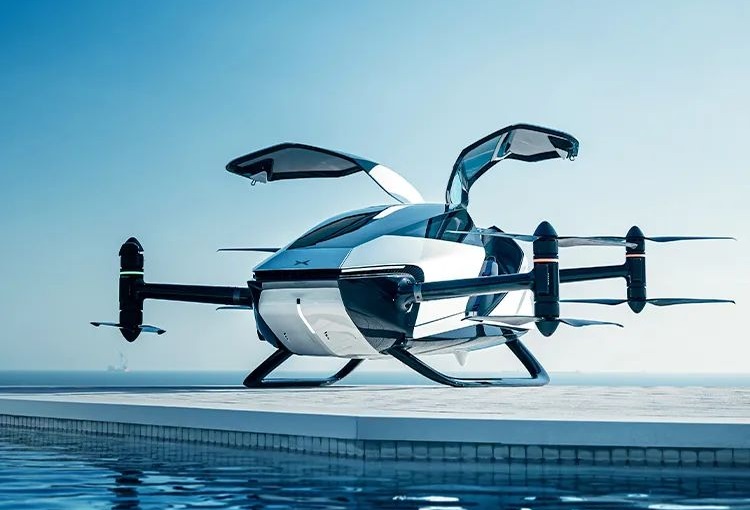As it obtains a crucial regulatory approval, the Chinese electric vehicle startup Xpeng is getting ready to launch its eVTOL into the air.
Aeroht, which is owned by He Xiaopeng, the founder of Xpeng, recently received a special flight permit from the Civil Aviation Administration of China, which is China’s equivalent of the Federal Aviation Administration in the United States. Aeroht’s electric vertical take-off and landing aircraft, the X2, can now fly with a pilot under special conditions thanks to this authorization. Aeroht says that with the permit, it will start a series of manned flying tests to gather information for future mass production.
Aeroht’s X2, which it calls a “flying car,” is a two-seat carbon fiber quadcopter without wheels. However, concept photos on the company’s website suggest that the next generation aircraft will be a sedan with wings.
According to the product information, the X2 is currently intended for “future low-altitude city flights and is perfect for short-distance city journeys such as sightseeing and medical transportation.” It can be operated humanely or autonomously, automating the start, return, and landing processes. Since its initial flight in June 2021, the model has carried out more than 3,000 tests.
Aeroht is one of two businesses that Xpeng started when he was nine years old and raised their own funds on their own. The flying company received over $500 million from a Series A financing led by IDG Capital, 5Y Capital, and Xpeng itself in October 2021. Do you remember the kids’ ridable robot pony? That is Xpeng Robotics, the other project from Xpeng, which raised $100 million in a Series A round in July of last year. Xpeng also participated, with IDG Capital serving as the primary backer once more.
These new goals are being pursued by Xpeng at a time when its main EV business is experiencing difficulties. After delivering less than half of its annual sales target in 2022, the automaker has pushed back its profit goal until 2025, Bloomberg reported earlier this week. The company with its headquarters in Guangzhou is engaged in a price war with established Chinese EV manufacturer BYD, which focuses on affordability, and Tesla, which has slashed prices a few times to attract more budget-conscious customers in the largest auto market in the world.

